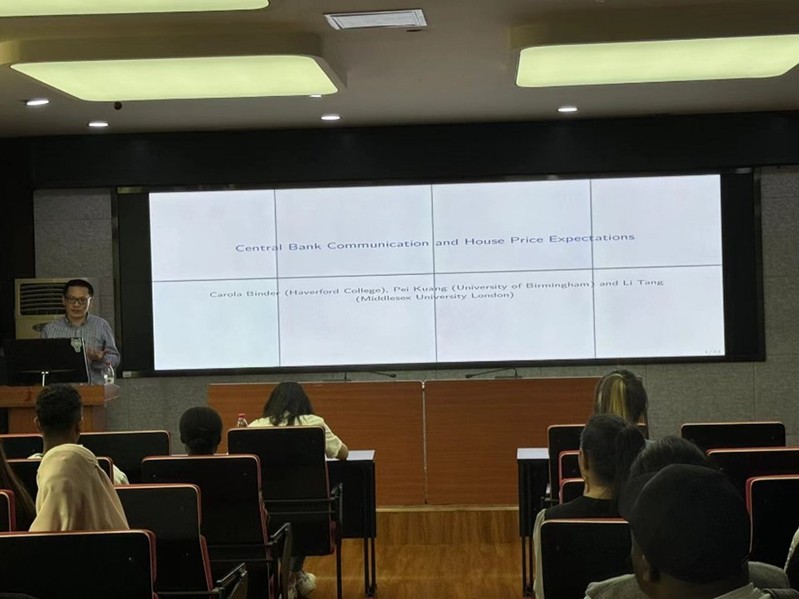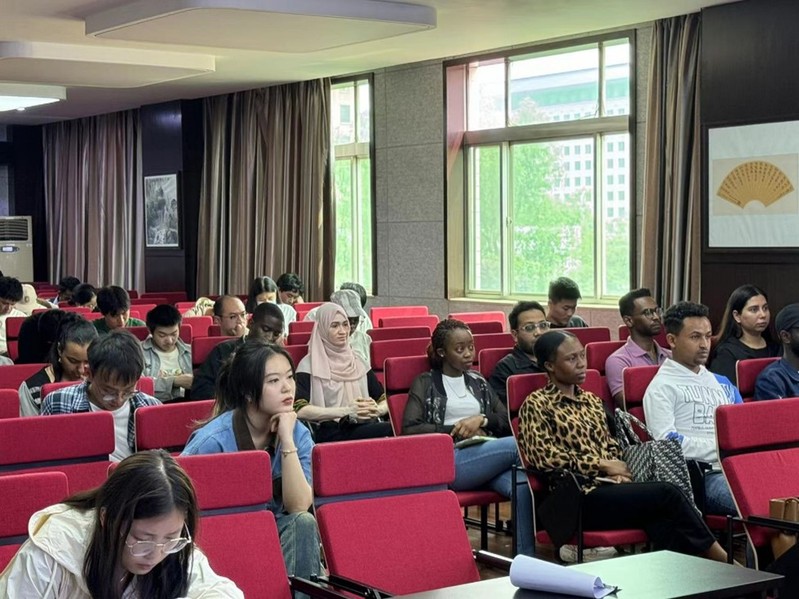On the afternoon of April 15, 2024, Pei Kuang, associate professor of macroeconomics at the School of Economics of the University of Birmingham, was invited by Chang'an University and jointly organized by the School of Economics and Management and the Office of International Affairs of our university to give an academic lecture on the theme of Monetary Policy and House Price Expectations in Room 407 of the School of Management and Economics. Graduate students of the School of Management and Economics, international students and advisor Bai Wenqi attended the meeting.

At the beginning of the lecture, Dr. Kuang Pei started from two aspects: the motivations of housing price expectations and why housing price expectations should be carried out, so that the students could have a preliminary understanding of the relevant background of housing price expectations. Then, based on the relevant literature research, the 3 Survey Waves of the house price expectation experiment are briefly introduced. Then, the Wave 1: RCT, that is, a randomized controlled trial to study response of house price expectations to information about Fed’s projected path of interest rates, is explained from three aspects: before, during and after the experiment, and finally summarizes the correlation between monetary policy and housing price change expectations. After the lecture, the participating students actively carried out academic discussions on monetary policy and housing price expectations with Mr. Kuang Pei, and many students said that the lecture sharing was clear and logical, and the explanation was thorough, and everyone gained a lot.


Dr Pei Kuang is a Associate Professor in Economics. He received his Ph.D. from the Goethe University Frankfurt (Germany) and joined the Department of Economics in August 2012. His research focuses on empirical and theoretical analysis of imperfect knowledge in Macro and Finance with an emphasis on macroeconomic policy making and issues related to expectation formation and learning. He has published in the NBER Macroeconomics Annual, Journal of Monetary Economics, European Economic Review and other journals.


 Local:
Local:

 2024-06-07
2024-06-07


